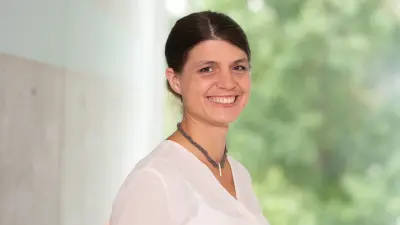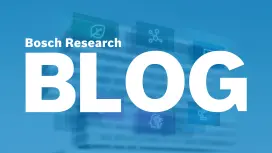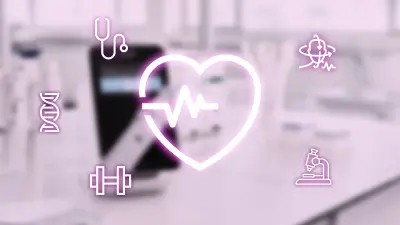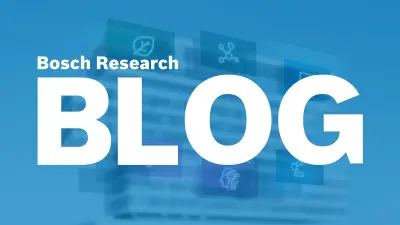How I fell in love with retrospectives
Bosch Research Blog | Post by Veronika Haug, 2021-01-14
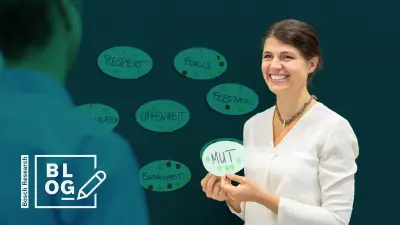
Recently, I took part in a networking event where, as part of the introduction, a member of the upper management was asked the question what she liked more: kick-off or lessons learned? She smiled and said she had to admit that she was more into kick-off events even though she thought lessons-learned sessions were more important.
I feel the same way: I also love starting new projects and new adventures; and often think kicking off a project is so much cooler than finishing one and recapping what we learned from it. I think there is something magical about starting anew, but shouldn’t there also be something magical about learning from the past and getting better continuously?
What do you like more: kick-off or lessons learned?
How did this happen?
Thinking about this topic, I realized that in the course of the last two years, I actually fell in love with retrospectives. Now you might wonder: “How could that happen?”
Two years ago, I started working as a Scrum Master for a newly established team in the healthcare field at Bosch Research. Right at the beginning of this new project, it was decided that it should be managed in an agile way, preferable with the Scrum framework. I was asked to be their Scrum Master and started to carry out this role.
I happily agreed to work as an agile coach for this team, as I found it much more appropriate to plan a research project in an iterative way than to use the traditional waterfall approach. I wanted to define and adjust the intermediate goals only after seeing the results of the latest experiments, to have so called sprints, which last for 2-4 weeks and for which the goals are defined at the beginning of the respective sprint. I never understood why the industry used to plan research projects for years in advance without having the knowledge which was to be gained on the way.
The magic of retrospectives
That was when the magic happened: By having the courage to show themselves, their needs and struggles, they made it possible for others in the team to meet these needs, to assist them in their struggles, and for everyone to collaborate more openly.
The team as a whole grew closer together and was able to deliver quickly and with an outstanding quality. Everyone felt responsible for the team output and wanted to make the project a success. They created innovative and creative solutions.
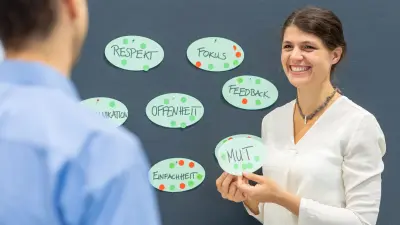
Just recently, we had to stop this particular project due to economic considerations and still: we as the leadership team call it a success. We learned so much on our way and we learned it fast.
I personally learned to appreciate, even love, retrospectives. They offer the time and the space for team members to show themselves and to be seen, to see each other and find out what they need to collaborate better and to improve constantly. This way, they help the whole team to perform better and have more fun at the same time! To me, this is a prerequisite for high-performing teams and I am more than happy to assist these brave, high-performing teams by offering them a safe space to talk about their needs and struggles. Real retrospectives are such a space and I actually started to love them.
How about you? Do you like retrospectives? Have you yourself experienced magic in these sessions?
I am curious to get to know your stories about retrospectives. If you do not have any experiences with retrospectives so far, I would strongly recommend you to give it a try – they deserve it!
What are your thoughts on this topic?
Please feel free to share them via LinkedIn or to contact me directly.
Author: Veronika Haug
Veronika initially came to Bosch Research as an expert in thin film solar cells. After that, she conducted research on a whole range of different topics and now, since the start of 2019, she is an Agile Master for various research teams, where she uses agile working methods to support her teams in producing top results.
